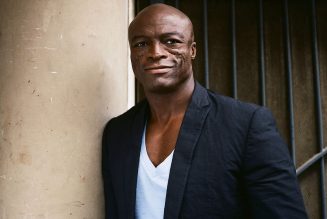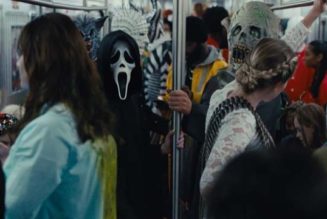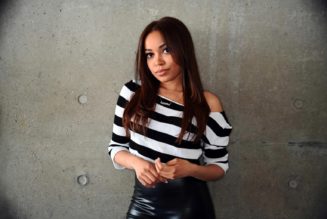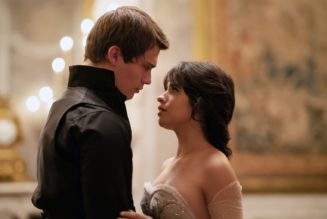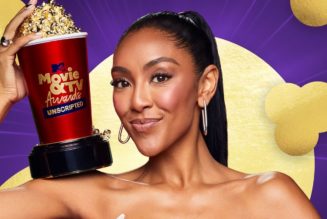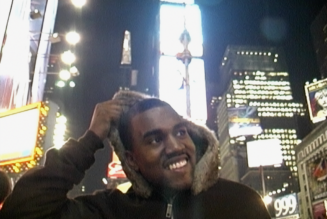By Emlyn Travis
In an unexpected way, Scarlett Johansson is “thankful” that it took almost a decade for Marvel Studios to give her character, Natasha Romanoff, her own solo film. “This movie would’ve been so different if we had made it 10 years ago. It was another time, and I think we can all agree on that,” she said to a pool of journalists during a set visit to Pinewood Studios in 2019.
Since her first appearance in 2010’s Iron Man 2, the story of the Russian spy-turned-first female Avenger has been exclusively tied to the successes of her male superhero counterparts. She was the sexy and mysterious “very expensive sexual harassment lawsuit” threat that kept Tony Stark on his toes in Iron Man 2 and the close friend and confidante that Steve Rogers could rely on while fighting the nefarious HYDRA in Captain America: The Winter Soldier. Even her reasoning for joining the Avengers was because her friend, Clint Barton, was put under Loki’s thrall in the 2012 film.
As a result, knowledge of who Romanoff is without a man fighting beside her is limited, ranging from a line about a battle in Budapest in The Avengers to a nightmarish flashback to her time spent at the Soviet brainwashing facility the Red Room in 2015’s Avengers: Age of Ultron. It wasn’t until 2019, nine years after her on-screen debut, that Natasha was allowed to stand under her own spotlight when plans to develop a Black Widow film were revealed at San Diego Comic-Con. Despite the glaringly long delay, Johansson is conscious that, had an adaptation of her character’s story been created any earlier, it would’ve likely taken a very different tone and direction than the film is allowed to now.
“I’ve had a lot of people ask me why we didn’t do it before now,” Johansson said. “I’m actually very thankful that it’s happening now, because we can actually make a movie that’s about real stuff and audiences want that. I think they’ve always wanted that.”
While the idea of a Black Widow film had been “on the table” for a long time, Johansson believes an earlier iteration would’ve focused on what she describes as the “beginning phase” of Natasha’s inner strength: her sexuality. According to Johansson, Natasha uses her sexuality “as a means to manipulate a situation” in her favor throughout her first few film appearances. “[She’ll] be coquettish and sly, and then she’s going to take your legs out,” she said. That deception can be seen in action during her introductory scene in Iron Man 2, when she sweetly smiles as Happy Hogan (Jon Favreau) mansplains boxing before she promptly flips him to the ground, and again in The Avengers, when she’s called “just another pretty face” while beguiling a Russian operative into spilling his secrets.
Now, Johansson looks back at her character’s hypersexualization with a sense of empathy, noting that Romanoff’s experiences dovetail with a time in her life when she, too, was gaining a better understanding of her own self-worth. “You look back at Iron Man 2 and, while it was really fun and had a lot of great moments in it, the character is so sexualized,” she said, referencing how Tony Stark treats her more like “a piece of meat” than a person in the film.
“Maybe, at that time, [those kinds of sexualized comments] actually felt like a compliment, you know what I mean? Because my thinking was different. My own self-worth was probably measured against that type of comment before, like a lot of young women. Then you kind of come into your own and you understand your own self-worth,” she said. “I’ll be 35 years old, and I’m a mom, and my life is different. Obviously, 10 years have passed, and so much has happened, and I have a much different, more evolved understanding of myself as a woman.”
That retrospection has also given Johansson a greater appreciation for how the perception of female superheroes in film has transformed in the last decade, in part due to characters like Natasha that have helped usher in a new generation. Marvel’s first woman-led film, 2019’s Captain Marvel, made over $1 billion in box-office earnings alone, and its recent Disney+ series WandaVision won Best Show, Best Hero, and Best Villain for Kathryn Hahn and Elizabeth Olsen’s knockout performances at the 2021 MTV Movie & TV Awards.
It’s a trend that Marvel seems keen to continue on in the future. In 2018, Marvel Studios president Kevin Feige told Screenrant that women would soon make up “more than half” of the heroes seen on screen, and its upcoming Phase Four slate looks to be reflective of that promise: four woman-led films, including Black Widow, and five woman-led Disney+ series. “It’s changing now. I think a lot of young girls are getting a much more positive message,” Johansson said. “It’s really been incredible to be a part of that shift and be able to come out the other side and not just be a part of that old story, but evolve. That’s pretty cool.”
 Disney / Marvel Studios
Disney / Marvel StudiosWhere once her greatest asset was believed to be her looks, Johansson believes that it’s the “vulnerability” and “compassion” that Natasha has shown throughout the franchise that has made her such a beloved character within the Marvel universe. “You’ve seen glimpses of it, and it’s developed as we’ve been able to bring the character to the forefront in different installments, but she’s a very compassionate person,” Johansson said. Whether it’s Natasha’s shocked realization that her positive changes in the world have been thwarted by a HYDRA infiltration in Captain America: The Winter Soldier or her ability to calm down the Hulk (Mark Ruffalo) with kindness in Age of Ultron, Johansson believes that it’s the character’s emotional vulnerability that fuels her heroic decision to sacrifice herself to save half the universe in Avengers: Endgame.
It makes sense then that Johansson “never wanted” the long-awaited Black Widow film to be a straightforward origin story, because simply traveling back in time would negate the personal growth the character has made since her first appearance. Instead, the upcoming Cate Shortland-directed film, which hits theaters and Disney+ Premier Access today (July 9), takes place between 2016’s Captain America: Civil War and 2018’s Avengers: Infinity War. To Johansson, that gap in the timeline was “a really interesting place to start” for Natasha because it gave “a lot of grit and every possibility” for the direction they could take her story.
The spy thriller follows Natasha after she is forced to go off the grid after breaking the Sokovia Accords and allowing Captain America and the Winter Soldier to escape from the superhero showdown at the Leipzig/Halle Airport in Germany. The impact of that decision, and its jarring implications on her life, have since taken a heavy toll on the character’s conscience. “When you find her at the beginning of the film, she’s just broken,” Johansson said. “Everything is gone, and she’s, for the first time ever, really just on her own. She could totally disappear into the ether and that would be that. She doesn’t have to return to anything, which is a pretty terrifying place to be when you’ve been attached to something for so long and now you’re suddenly floating.”
That time apart from one superhero family opens the door for Natasha to reconnect with another — her childhood surrogate spy family consisting of sister Yelena Belova (Florence Pugh), father Alexei Shostakov (David Harbour), and mother Melina Vostokoff (Rachel Weisz). While their relationships are strained by time, they make the decision to come together to defeat a threat larger than themselves and go toe-to-toe with the highly skilled villain Taskmaster along the way.
 Disney / Marvel Studios
Disney / Marvel StudiosJohansson believes that the relationship between Natasha and fellow Red Room survivor Yelena will be “very touching” for audiences to see on screen. Early in the film’s development, Johansson revealed that the idea of pitting the two women against one another, which was originally the relationship between the characters in the comics, “felt not interesting.” Instead, the duo is brought together by a shared history. “[It’s] a relationship that is grounded in a shared experience and a knowingness and sisterhood,” Johansson explained. “And with that comes many complicated feelings, of course. Not all good fuzzy ones, but visceral, real, grounded ones.”
It’s a relationship that Johansson finds poignant, especially given the siblings’ convoluted history and trauma. “I think that shared history, as dark as it is, is what brings them together,” she said. “There’s a lot of love between them, but the relationship is also contentious and everything else that comes with that kind of sisterly relationship.”
Exploring these real, ugly parts of Natasha’s past, including her association with the Red Room, on set with Shortland was also a highlight for Johansson. “With Cate, it’s just been so liberating because she’s not afraid of any of the ugliness or what is perceived to be ugliness — the embarrassing, uncomfortable parts,” Johansson said. It’s through the film’s gritty, raw authenticity that Natasha will be re-introduced to the world as the powerful, self-actualized superhero she was always meant to be. “I hope we see Natasha in her real, true strength in this film more than ever before, and I think Cate will bring that out, too.”



